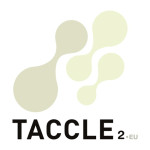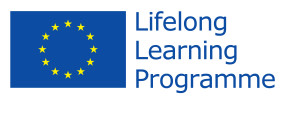Each time you use your mobile phone, access the Internet or log onto a website you leave a ‘trail’ of information behind. This trail is made up of data such as log-ins and log-outs, websites visited, content created or accessed, emails sent and received, chat messages and most recently, the geographic position of the user. The sum of this information is your digital footprint. Obviously, the greater your on line presence, the larger your footprint is going to be.
Younger learners will obviously have a smaller digital footprint than your average teenager. However, as soon as they start using on line applications – or even searching the web – their digital footprint grows rapidly. However, unlike ordinary footprints, they are not erasable – at least, not by the end users.
You will want to discuss the implications of this with students. Do they really want future employers / university admissions tutors / their grandmother / their future children etc. to see photographs or videos of themselves doing stupid things? Do they want something silly they posted when they were 12 to come back and haunt them when they are adults?
One way of reducing, if not eliminating, your digital footprint is to make sure, if you are using software with different privacy options, that you understand and use them effectively. Mostly the privacy settings allow you to decide things such as what information you are going to ‘share’ and with whom; who you are going to allow to share their data with you and who you are going to block; who will you allow to be your ‘friend’ and so on. Before you use any software, read the privacy statement first. If you don’t agree with it, search around to find a similar site that doesn’t request personal information
This is a tricky one in the classroom. Our feeling is that younger learners should never publish any content that can be accessed by people they don’t know. From our point of view, this is largely to protect them from comments that some unpleasant people leave. We once had a group of kids who made a ‘TV commercial’ and videoed it. They put it up on YouTube and although the majority of comments were very positive, there were a few who made very critical remarks in a way that was designed to hurt.
In terms of privacy, students in your class need to know that they must NEVER give out any personal information on line or any information about other people – such as their parents. Discuss with them what this ’personal’ information is (e.g. real name, address, phone numbers, email addresses.). They should also never respond to questions such as “What job does your father do?” (Fishing for information about family income) or even “What sort of pet do you have?” (We were bombarded with junk mail about rabbit food for 6 months). It’s a good idea to visit some sites. Pay particular attention when sites collect this sort of information and blacklist them.
Don’t ever allow primary age children to download their own software – especially free games. Certain on line applications have ‘malware’ embedded in them – mal-icious programs that enter your computer when you download the host software and collect personal information. One of the biggest problems resulting from lax privacy is not so much a direct threat to the learner but that your computer (or their home computer) will be flooded with spam and advertising because personal data will have been collected and sold on to sellers.
Finally, be very, very careful with your own privacy. School authorities, never mind parents, are likely to take a dim view of photographs that are visible to the world on your Facebook page showing you worse for wear after a drunken night out – or worse. In 2012 a teacher in the UK was struck off the professional register after being suspended by their school for just such a photograph. There was an appeal and two firmly entrenched sets of lawyers argued the case for professional misconduct vs. personal liberty. Irrespective of the outcome or your personal feelings – is it really worth the hassle? And do you really want to face a class of 12 year olds who have seen pictures of you topless?
By the way, school managers should periodically do searches of their school names on Google and other search engines to see what pops up. It’s very common to find that an unofficial web site or chat room exists for their school. These can be quite useful! Teachers can use these sites to pick up on potential problems or conflicts, troubled students, complaining parents etc.
This post is also available in: Dutch, German, Italian, Spanish, Portuguese (Portugal), Romanian




 English
English Nederlands
Nederlands Deutsch
Deutsch Italiano
Italiano Español
Español Português
Português Română
Română Cymraeg
Cymraeg
I agree with the content of this article.
(1) Unfortunately kids are kids and kids humor is quite different from adult humor. And we have to admit that. Intelligent future employers / university admissions tutors / their grandmother / their future children etc will admit that. You can’t put kids creativity and social life in an adult box. But we have, as a teacher, the duty to stress on the item: me and myself on the internet.
(2) It’s true: who reads the privacy statement? Isn’t there a legal organization out there who can inform us?
(3) What is from the school remains in the school: i can’t agree more.
(4) Not only school managers should periodically do searches of their school names, we all have that responsibility.